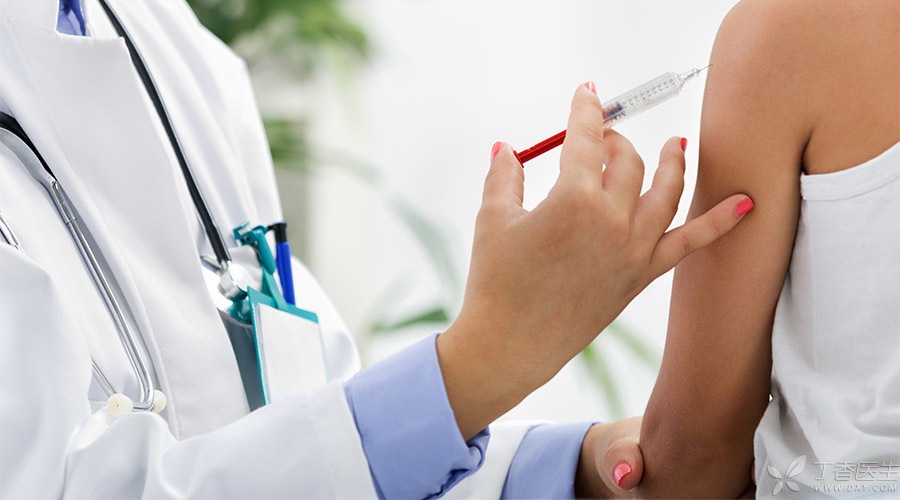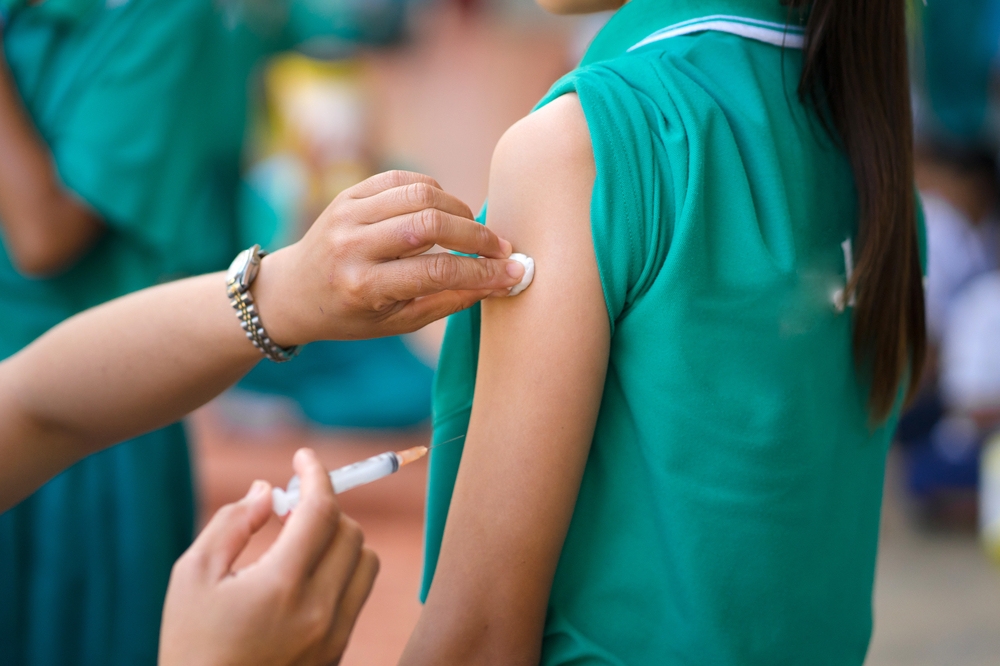
According to the feedback from the readers, I made a supplement to yesterday’s article on HPV vaccine, just 38 articles, full of sincerity, dedicated to the vast number of female friends.
1. Cervical cancer is second only to ovarian cancer in female genital tract malignant tumor, with nearly 600,000 new cases and 300,000 deaths worldwide each year. China has about 135,000 new cases each year, of which 80,000 die.
2. Almost all (99.7%) cervical cancer is caused by HPV infection. The 2008 Nobel Prize in Medicine was awarded to Harald Zur Hausen, a German scientist who discovered the relationship between HPV and cervical cancer. He first discovered that HPV causes cervical cancer and conducted in-depth research on its mechanism. Finally, it was proved that HPV infection is the main cause of cervical cancer. This major discovery is the fundamental basis for HPV vaccine research and development in the future.
3. HPV infection not only leads to cervical cancer, 90% of anal cancer, 40% of vulvar/vaginal cancer and 12% of head and neck cancer are closely related to HPV infection.
4. Sex is the main route of HPV infection, but it is not the only route. Condoms cannot completely block the transmission of HPV.
5. HPV infection is very common. As long as you start sex, the probability of being infected by HPV in your life is very high. The HPV infection rate of sexually active women is about 50% ~ 80%. HPV infection usually has no symptoms, so it cannot be detected by yourself.
6. HPV infection does not necessarily lead to cervical cancer. HPV has more than 100 subtypes, which are divided into low-risk type and high-risk type. 50% ~ 90% of HPV infection can be eliminated by the immune system within a few months to 2 years after infection and will not lead to long-term harm.
7. Only persistent infection of high-risk HPV will progress to malignant lesions. Definition of persistent HPV infection: Two consecutive detections of the same high-risk HPV at intervals of more than one year are considered persistent infection.
8. HPV 16 and 18 are the most important high-risk HPV types, and 70% of cervical cancer is caused by these two types of HPV. Therefore, the current HPV vaccine is mainly aimed at these two types of HPV, in other words, the current vaccine may only prevent 70% of cervical cancer.
9. HPV vaccine is the first attempt by human beings to eliminate a cancer through vaccine, which is of epoch-making significance.
10. Strictly speaking, it is not yet possible to draw the conclusion that [HPV vaccine can prevent cervical cancer], because the process of continuous HPV infection to cervical cancer can take as long as 15-20 years, so the first clinical trial data with cervical cancer incidence as the research endpoint will not be available until 2020.
11. The United States and Europe, At present, it is based on whether it can prevent HPV persistent infection as the evaluation criterion, Because it can theoretically prevent HPV persistent infection, cervical cancer should be prevented. 15 years of waiting may mean that 2 ~ 3 young women will lose the opportunity to prevent cervical cancer, which is also the main reason for Europe and the United States to approve the listing of HPV vaccines as soon as possible. The principle of “no harm and advantage” is the ethical basis for the approval of HPV vaccines.
12. The two HPV vaccines currently on the market worldwide are Merck’s Gardasil and GlaxoSmithKline’s Cervarix. These two vaccines have been listed in more than 100 countries and regions and have been used in tens of millions of cases worldwide.
13. For women who have not been infected with HPV, the two vaccines have shown high long-term effectiveness (> 95%) in preventing cervical cancer, precancerous lesions and other genital diseases. Currently, the two vaccines are considered to have the same effect. Gardasil additionally prevents genital warts such as condyloma acuminatum.
14. The suitable age for HPV vaccination varies from country to country or from institution to institution in the same country. Globally, it is 9-45 years old. FDA-approved age is 9-26 years old, and some institutions suggest 11-12 years old is the best age for vaccination. Because, in the United States, sex seems to happen at any time after high school.
15. The age limit is not absolute, the key is to see whether there is sex life. HPV vaccine works best for women who have no sex life history. If they still have no sex life by the age of 35, then vaccination at this time is completely cost-effective. However, if someone plans to spend his whole life without sex life, the need for vaccination is very small.
16. Can’t you be vaccinated against HPV after having sex? No, it can be vaccinated at any time basically, but once sex starts, the chance of HPV infection increases greatly. Official agencies think it is not cost-effective from the perspective of pharmacoeconomics.
17. Immunization is a public policy, and official agencies will definitely consider its input income, which is why most countries and WHO official documents do not recommend men to be vaccinated with HPV vaccine, because: 1. The benefits for men are mainly to prevent genital warts, and such diseases are not fatal; 2. At present, we cannot see the effect of male vaccination on the prevention of cervical cancer in women.
18. Therefore, regardless of whether they have sex or have been infected with HPV, vaccines are a possibility to spend money on prevention. Since HPV vaccines are not cheap, official agencies will consider the overall input and output, and individuals should also make choices according to their own conditions.

19. Most HPV will be removed by the human immune system, and there is no specific drug to treat HPV, so general HPV infection does not need treatment.
20. Cervical cancer screening should still be carried out regularly after vaccination with HPV vaccine, because HPV vaccine cannot prevent all high-risk HPV types.
21. The occurrence of cervical cancer is a long process, and the current cervical cancer screening technology (including HPV testing) is quite mature, so regular cervical cancer screening after the age of 30 is more important for women who have sex or HPV infection. Unfortunately, the coverage rate of cervical cancer screening in China is less than 14% of women of the right age.
22. It is not necessary to check whether you have been infected with HPV before vaccination. Measles virus will be immunized for life once infected, while HPV is not, so testing before vaccination is not necessary.
23. Is HPV vaccine safe? Judging from the tens of millions of uses over the past 8 years, it has withstood the test. As for the more long-term safety, it takes time to answer.
24. Due to insufficient data support, HPV vaccination is not currently recommended for pregnant women.
25. At present, no adverse effects of HPV vaccine on the fetus have been found, so if pregnancy is found within 6 months of vaccination, there is no need to worry about the health of the fetus, but it is recommended to stop continuing to inject vaccines that have not yet been injected until the child is born.
26. You can get pregnant immediately after receiving HPV vaccine without waiting.
27. How long is the protection period after HPV vaccination? U.S. Centers for Disease Control and Prevention data is 6 years, and the protection effect does not weaken with the passage of time. The 6-year data is mainly because the vaccine has only been on the market for 8 years, and it needs longer time to observe. Whether HPV vaccine has a longer protection period or even a lifetime effect is only left for time to answer.
28. Merck (Merck) and GlaxoSmithKline began to apply for listing in China in 2006. As of the current period, GlaxoSmithKline’s human papillomavirus adsorbed vaccine will soon be approved for listing.
29. The delay in the approval of HPV vaccines in China, The main reason is that China’s drug evaluation centers insist on adopting different curative effect judgment standards from those of Europe, America and WHO. The view is as follows: Since it is a cervical cancer vaccine, it is necessary to see the exact preventive effect on cervical cancer, at least to see the preventive effect on precancerous lesions (cervical intraepithelial neoplasia). However, HPV infection to the occurrence of precancerous lesions takes an average of 5 years or even 10 years, so the clinical trial before the vaccine goes on the market takes at least 5 years.
30. An article published in July 2013 in the Chinese Journal of Oncology, Calls on drug evaluation centers to revise the current HPV vaccine effectiveness evaluation criteria, In line with Europe, America and WHO, To speed up the listing of HPV vaccines in mainland China. Assuming we believe that HPV vaccines are indeed effective, Then in the years when the listing was delayed, tens of millions of women of the right age in China lost the opportunity to choose vaccination. It is hard to say that what is wrong in China’s new drug evaluation system. Where are the rules? It is not easy to change them. It requires extraordinary ability and courage.
31. Some mainland women chose to go to Hong Kong to be vaccinated against HPV. They asked if they could be vaccinated during their menstrual period. The answer was yes: Yes.
32. From the experience of Taiwan and Hong Kong, HPV vaccine is as effective for Chinese, and it is almost the same as what in Europe and America.
33. HPV vaccines are usually injected in three times, which takes about 6 months to complete, i.e. The first time at the beginning, the second time in the second month, and the last time after 6 months. Therefore, if you go to Hong Kong for vaccination, you have to make at least 3 round trips, and the cost of the vaccine itself is between 2,000 and 3,000.
34. Some medical institutions have set up the business of HPV vaccination in Hong Kong, but whether it is worth it or not, please refer to the above contents for your own consideration according to the situation. In order to avoid conflicts of interest, no recommendation is made here.
35. HPV vaccine also has ethical arguments. For example, some people think that vaccinating teenagers is a disguised form of encouraging them to start sex early. If the sex industry cannot be banned, then the sex trade with condoms should be promoted. These people do not even understand the basic logic and look like they love the next generation.
36. Even though HPV vaccines have been approved for listing in many developing countries, the vaccination rate is still not high, mainly because vaccines are not cheap. We have seen many articles criticizing vaccine manufacturers for not having conscience, but in a non-monopoly free market, we should respect the free pricing of enterprises. Only by making huge profits can more milestone new drugs be produced.
37. The vaccines currently on the market are all preventive and have no therapeutic effect. Therapeutic HPV vaccines have also been developed, and some vaccines have shown good effects in clinical trials.
38. Is writing this article strongly recommending everyone to be vaccinated with HPV? Wrong, it is the possibility of calling for everyone to have a choice. As for whether to vaccinate or not, every family and individual needs to judge for themselves. To go to Hong Kong for vaccination, Plus travel expenses (single person) price is almost tens of thousands, if it is parents accompany the cost is more, if the vaccine is not lifelong immunization, need to add vaccination in the future, this is a big burden. The early screening technology for cervical cancer is already very mature and much cheaper.
